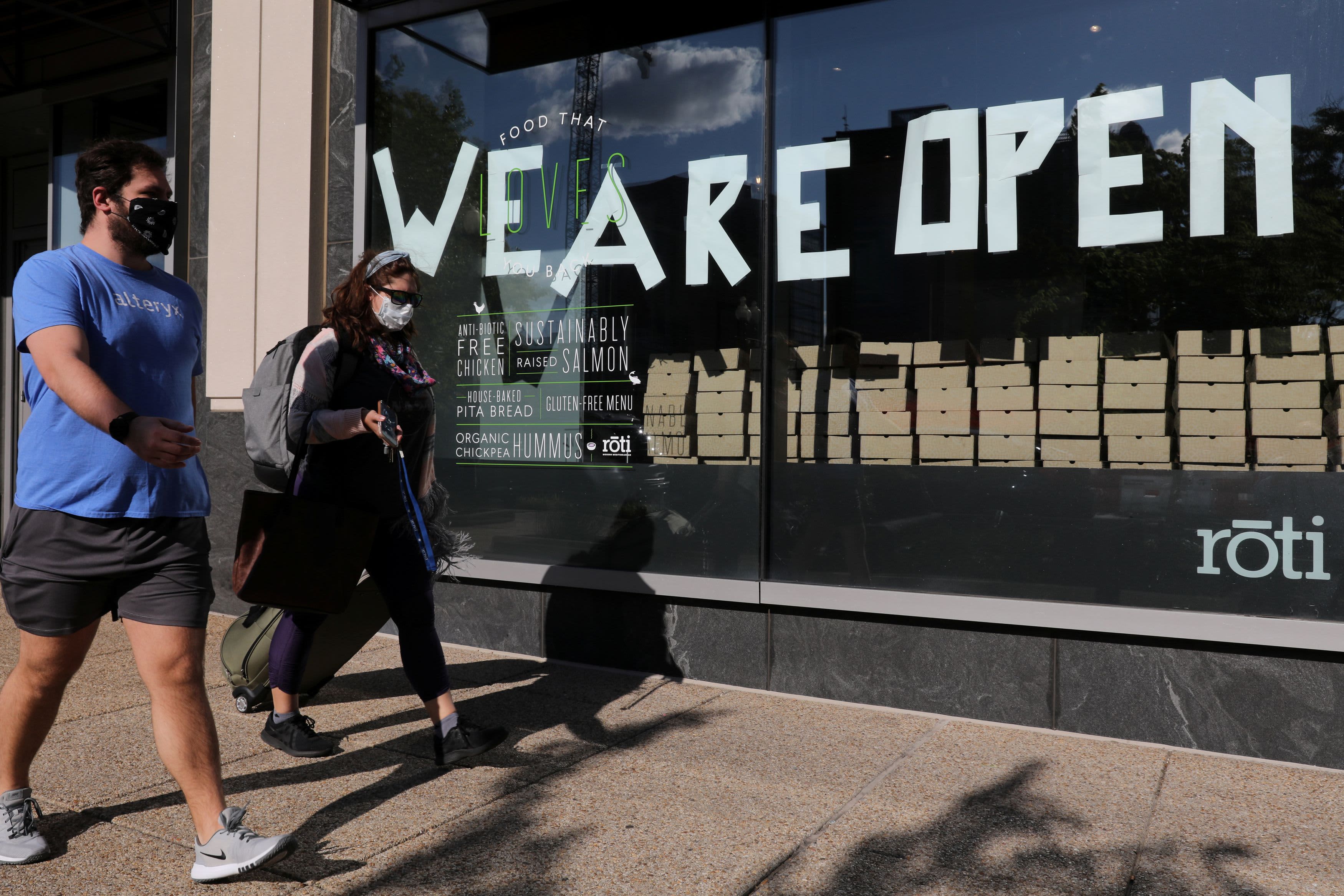The U.S. economy has faced a substantial loss due a nationwide shutdown. On April 29, the Bureau of Economic Analysis reported that the gross domestic product shrank by 4.8% in the first quarter, the lowest it's been since the worst of the 2008 financial crisis. It's partially due to a steep 7.6% drop in consumer spending, which makes up about two-thirds of total GDP.
Although most of the U.S. remains under lockdown, states including Georgia began reopening on April 24. State guidelines for reopening differ widely, but a key difference lies in which sector will open first and the speed of the process. Less-impacted states like Iowa simultaneously opened restaurants, fitness centers, malls and libraries at a 50% capacity on May 1.
"We have different states at very different places in the Covid outbreak and with different public health responses themselves," said Jonathan Parker, a professor of finance at MIT, "so it's crazy to think we can flip the national light switch back on and reopen the economy nationally given that they are all in different places."
There is no guarantee that an early reopening can guarantee a successful economic recovery. Even if businesses open, consumers may not feel confident to venture out. A recent study revealed that more than two-thirds of Americans surveyed will actively avoid public places until lockdowns end. Experts also fear the possibility of a second wave of infections that can shut down the economy once again.
"If a second wave of infections hits, we will be coming out of a bad GDP shutdown with a high unemployment rate and a debt-to-GDP ratio greater than 100% and projected deficits for this year are already $5,000 per American household" according to Parker. "A second wave of infections would be, I think an even more major economic disaster than the current one."
None of the states has had a two-week decline in case numbers, as recommended by the federal guideline before reopening. The U.S. reported its deadliest day for coronavirus patients on May 1, the same day 14 states began to reopen.


